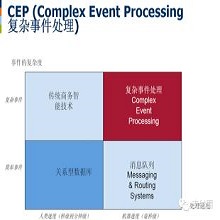In large scale dynamic wireless networks, the amount of overhead caused by channel estimation (CE) is becoming one of the main performance bottlenecks. This is due to the large number users whose channels should be estimated, the user mobility, and the rapid channel change caused by the usage of the high-frequency spectrum (e.g. millimeter wave). In this work, we propose a new hybrid channel estimation/prediction (CEP) scheme to reduce overhead in time-division duplex (TDD) wireless cell-free massive multiple-input-multiple-output (mMIMO) systems. The scheme proposes sending a pilot signal from each user only once in a given number (window) of coherence intervals (CIs). Then minimum mean-square error (MMSE) estimation is used to estimate the channel of this CI, while a deep neural network (DNN) is used to predict the channels of the remaining CIs in the window. The DNN exploits the temporal correlation between the consecutive CIs and the received pilot signals to improve the channel prediction accuracy. By doing so, CE overhead is reduced by at least 50 percent at the expense of negligible CE error for practical user mobility settings. Consequently, the proposed CEP scheme improves the spectral efficiency compared to the conventional MMSE CE approach, especially when the number of users is large, which is demonstrated numerically.
翻译:在大规模动态无线网络中,由频道估计(CEE)造成的管理管理费用正在成为主要的绩效瓶颈之一,这是由于频道应该估计的用户数量众多、用户流动性以及使用高频谱(如毫米波浪)导致的频道快速变化。在这项工作中,我们提出了一个新的混合频道估计/预测(CEP)计划,以减少时间配置(TDD)无线无线无线手机的多投入-多产出(mMIMO)系统的管理费用。计划建议每个用户只在一定数量(窗口)的协调间隔(CIs)中发出一次试点信号。然后,使用最低平均差(MMS)来估计高频谱频谱频谱(如毫米波波浪)的频道。我们提出了一个新的混合频道估计/预测(CEPE)计划,用于预测窗口中其余的光谱(TDDD)系统(DNNEP)系统的管理渠道。 DNN利用连续的CI公司和收到的试点信号之间的时间相关性来提高频道预测准确性。通过这个计划,CE管理费至少减少50%,而降低CEPER系统在实际操作效率方面,而CEPLVLVI值则显示,而CER系统在实际操作上的效率差率上是微不足道。



